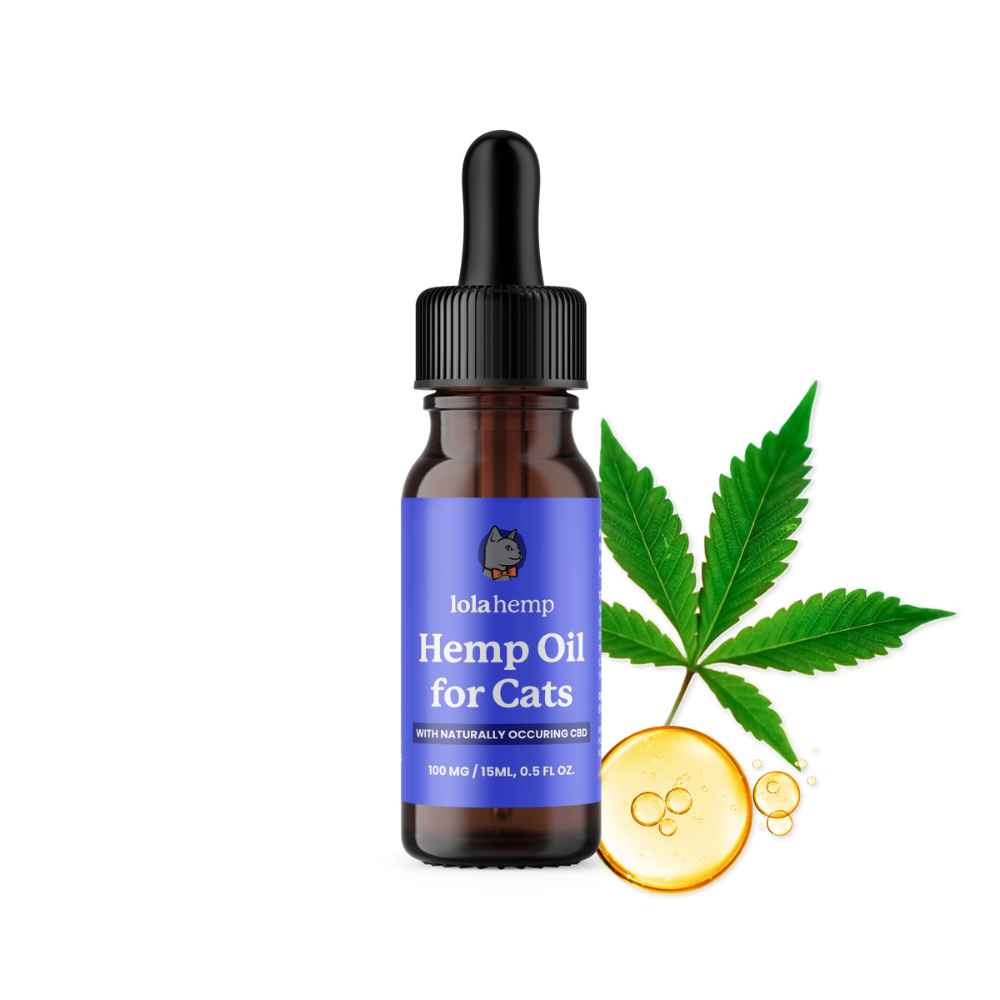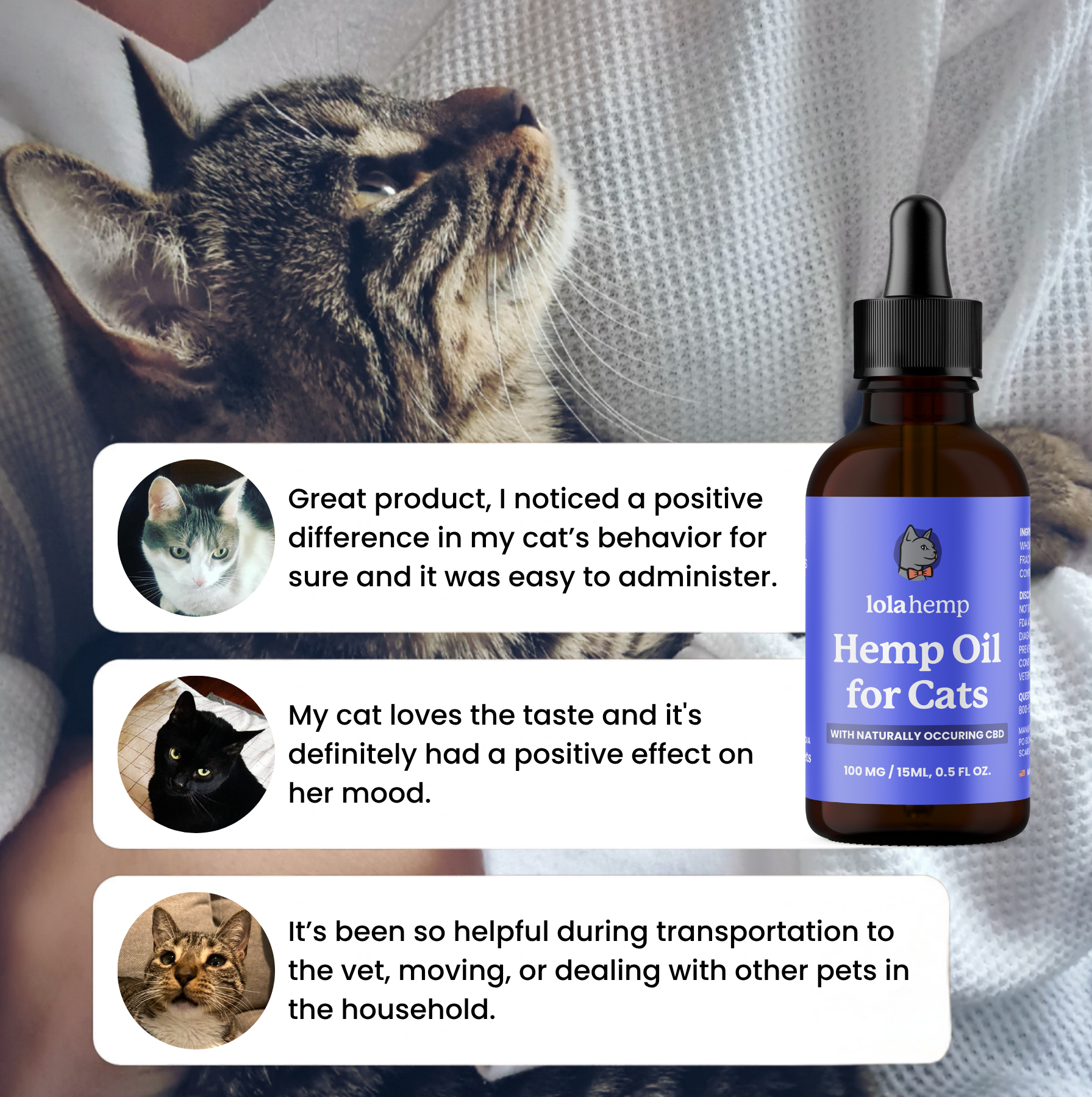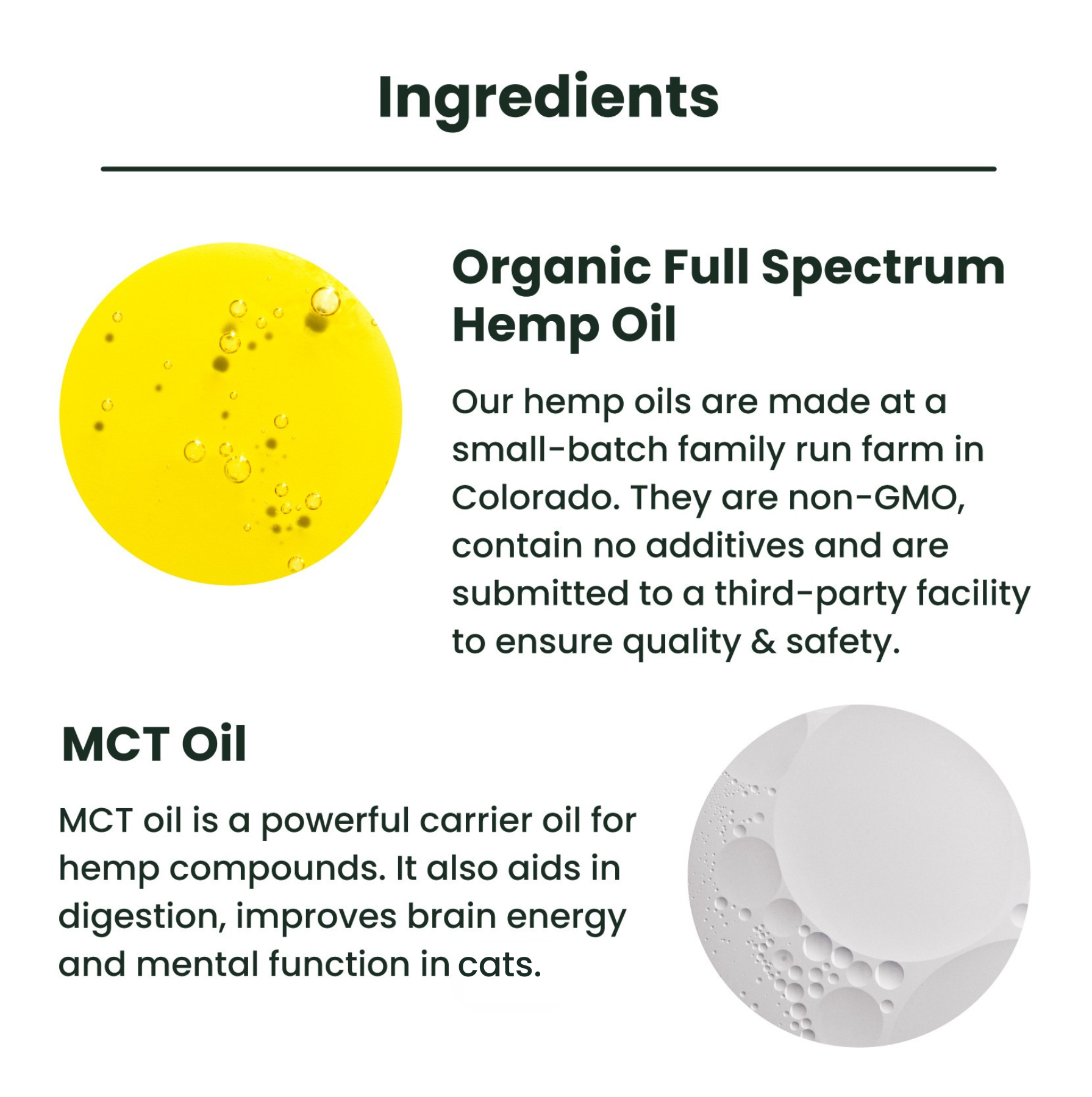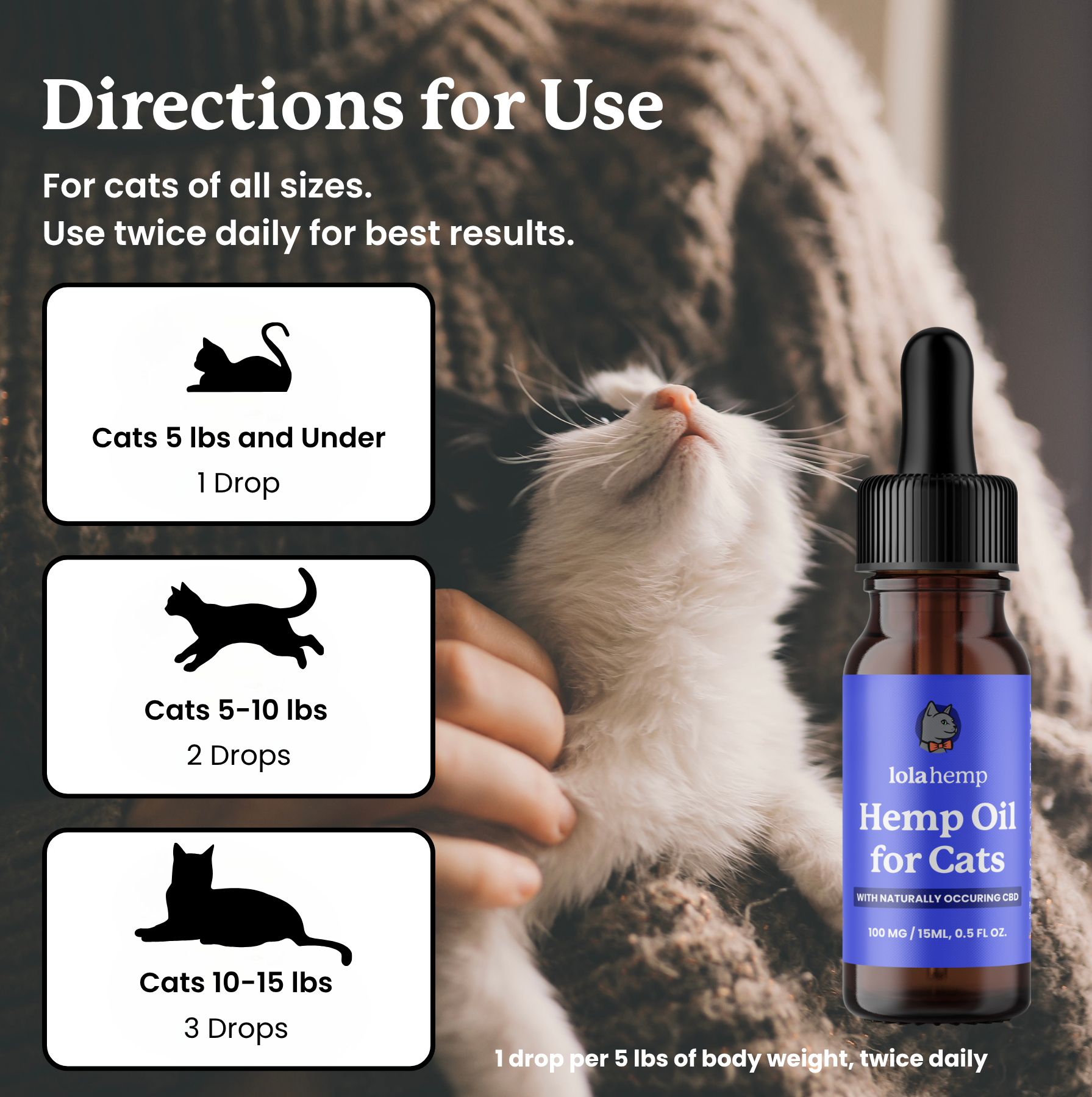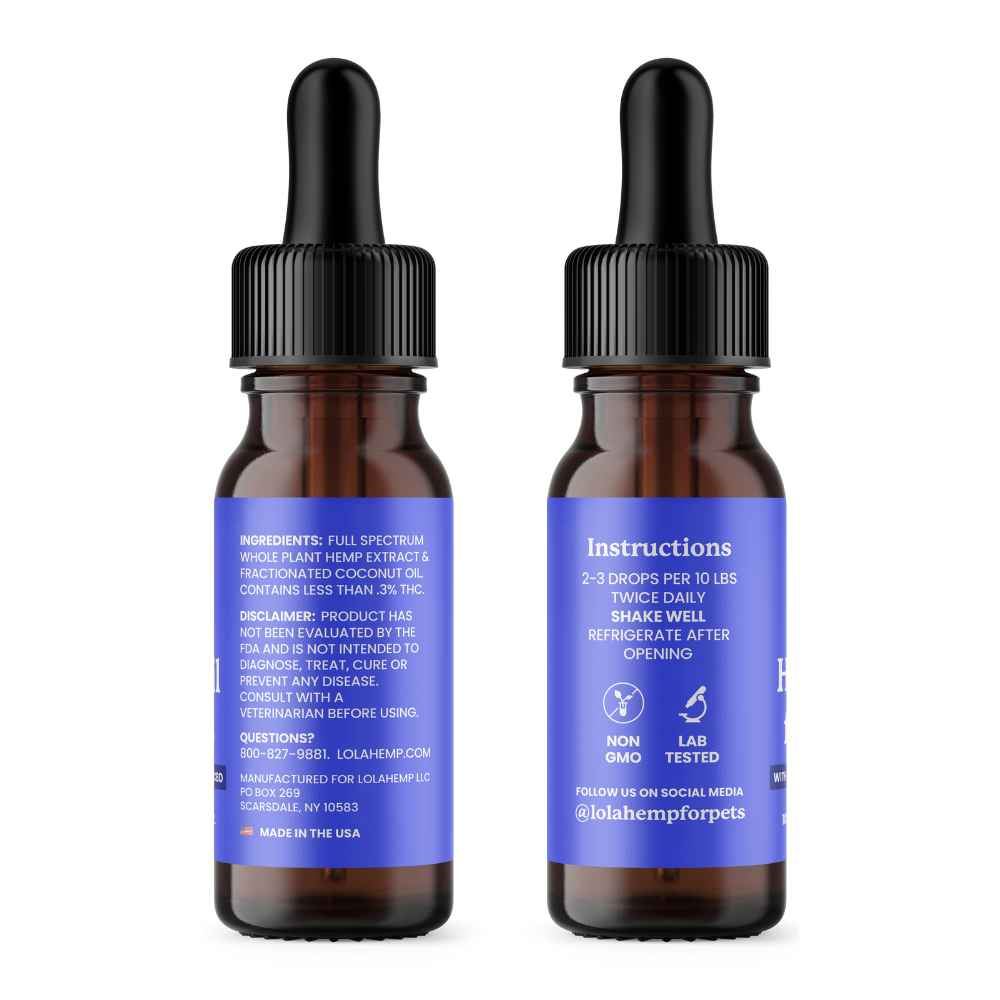It's always tough to see our cats in pain, especially when they're usually energetic and happy. Whether it's acute or chronic pain, recognizing discomfort in cats can be challenging. Your cat may experience pain due to injuries, dental problems, surgery, digestive issues, or even serious conditions like arthritis or cancer.
Managing pain in cats is essential for their well-being. This guide explores natural pain relief options and home remedies to help keep your feline friend comfortable.
Common Natural Remedies for Cat Pain
1. CBD Oil
CBD oil is derived from the hemp plant and is widely used as a natural supplement for pain relief in cats. It interacts with the endocannabinoid system, which helps regulate pain, inflammation, and overall well-being. Many pet owners report improvements in mobility and reduced stiffness in their cats when using CBD oil. However, it's important to choose high-quality, pet-safe CBD products and consult with a veterinarian for the appropriate dosage.
2. Glucosamine & Chondroitin
Glucosamine and chondroitin are essential compounds for joint health. They help maintain cartilage integrity and reduce joint deterioration, making them particularly beneficial for older cats or those with arthritis. These supplements can improve flexibility and mobility while reducing discomfort caused by joint inflammation. They are often included in feline joint health formulas, available in powder, liquid, or chewable forms.
3. Fish Oil
Fish oil is an excellent source of omega-3 fatty acids, which support a healthy inflammatory response and promote joint health. It is especially useful for cats experiencing chronic pain from arthritis or other inflammatory conditions. Additionally, omega-3s contribute to heart health, brain function, and a glossy coat. Always opt for high-quality fish oil specifically designed for pets to ensure safety and effectiveness.
Home Remedies for Cat Pain
Working with your vet is crucial, but there are steps you can take at home to support your cat’s comfort and mobility.
Maintain a Healthy Weight
Excess weight puts stress on joints and increases pain. A proper diet and portion control can help prevent and alleviate joint pain.
Provide a Safe & Comfortable Environment
If your cat is recovering from an illness, injury, or surgery, keep their space quiet and stress-free. Place food, water, and the litter box within easy reach, and limit interactions with other pets.
Encourage Gentle Exercise
For chronic pain, light exercise can help maintain mobility and muscle strength. Engage your cat with toys and interactive play, ensuring activities are appropriate for their condition.
Signs of Pain in Cats
Cats instinctively hide pain, making it difficult to recognize when they're suffering. Here are common signs to watch for:
- Increased Hiding: Cats may withdraw and avoid interaction when in pain.
- Behavioral Changes: A normally affectionate cat may become irritable, aggressive, or distant.
- Loss of Appetite: Pain can cause a cat to eat or drink less, which is especially concerning in senior cats.
- Altered Posture & Movement: A stiff, hunched posture or reluctance to jump or climb can indicate discomfort.
- Excessive Licking or Biting: Cats often groom painful areas excessively as a self-soothing behavior.
- Unkempt Fur: A lack of grooming may signal pain, stress, or illness.
- Changes in Breathing: Rapid breathing can be a sign of pain and should be evaluated by a veterinarian.
- Restlessness or Anxiety: Unusual agitation may indicate internal discomfort.
Seeking Veterinary Care for Cat Pain
If you notice signs of pain in your cat, consult a veterinarian promptly. They can assess your cat’s condition through a physical exam, blood tests, or X-rays to determine the cause and recommend appropriate treatment.
Pain Management for a Better Quality of Life
While managing pain in cats can be challenging, recognizing early signs and seeking veterinary care can improve their quality of life. Through a combination of proper medical treatment, natural remedies, and lifestyle adjustments, you can help your cat feel comfortable and happy.
Frequently Asked Questions About Natural Pain Relief for Cats
What natural remedies help relieve pain in cats?
Common natural options include CBD oil, glucosamine, chondroitin, and fish oil, all of which may support comfort and mobility.
How can I tell if my cat is in pain?
Cats may hide pain, but signs include hiding, irritability, reduced appetite, stiffness, overgrooming, and changes in breathing or movement.
Is CBD oil safe for cats?
CBD oil is generally considered safe when using high-quality, pet-formulated products. Always consult your veterinarian for proper dosage.
Can fish oil help with cat pain?
Yes. Fish oil provides omega-3 fatty acids that support a healthy inflammatory response and may help reduce discomfort from chronic conditions.
When should I take my cat to the vet for pain?
If your cat shows persistent symptoms of pain, behavioral changes, loss of appetite, or mobility issues, a veterinary evaluation is recommended.

